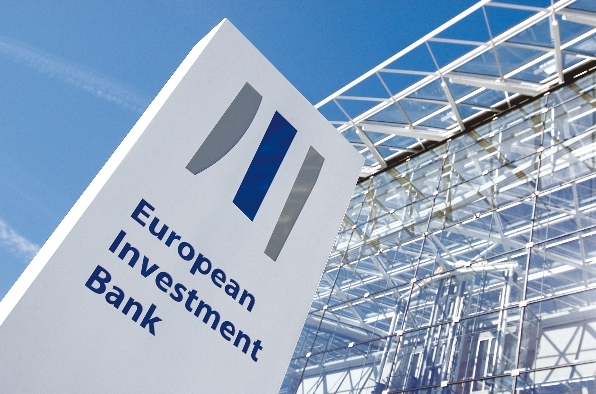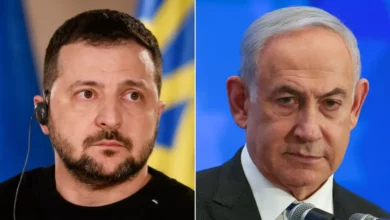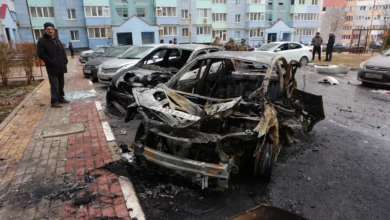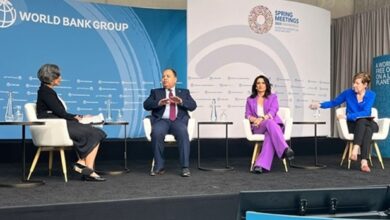
The Egyptian investment bank EFG Hermes had Gamal Mubarak, once considered the next heir to Egypt’s presidency and now on trial for corruption, as a shareholder. So why was the European Union’s financing institution, the European Investment Bank (EIB), doing business with the company? And if the EIB worked with corrupt partners like Muabrak in the past, should Egyptians trust it where future lending is concerned?
Anders Lustgarten wants answers to these questions. A member of Counter Balance, a European coalition of development and environmental non-governmental organizations formed in 2007 to challenge the EIB, Lustgarten and his colleagues are warning about Egypt’s post-Mubarak economy.
“The EIB is fascinating for activists, and it’s a strange beast,” Lustgarten said during a recent visit to Cairo.
“It’s twice the size of the World Bank, but no one knows anything about it, because most of its lending has traditionally been in Europe. But, in recent years, it has had a bigger role outside the EU. It has become the EU’s development body without being planned, so it’s unsuitable because it doesn’t have enforceable standards,” Lustgarten said.
Counter Balance’s stated mission “is to make the EIB an open and progressive institution delivering on EU development goals and promoting sustainable development to empower people affected by its work.”
“The good thing about the EIB is that you can get at them at the courts. You can prosecute them through the European parliament and courts of justice,” Lustgarten said.
Its offences, according to Counter Balance, include lending to private equity investment vehicles registered in offshore tax havens, making the lent money difficult to track. The accusation is that by lending to EFG Hermes’ private equity subsidiary, the EIB was propping up Gamal Mubarak’s investment vehicle, whose profits did not go towards serving the Egyptian public but rather the private interests of Gamal Mubarak and his business cronies.
The EIB made four investments in EFG Hermes: In October 2000, it lent 4.5 million euros to the Jordan High Tech Fund, set up and managed by EFG Hermes Private Equity (EHPE). In February 2001, 6 million euros went to the Middle East Technology Fund, also run by EHPE. In December 2005, a 6.3 million euros Risk Capital Facility was lent to EFG Hermes Holding Company, the investment bank’s parent company. And in May 2010, 39 million euros was given to the InfraMed Infrastructure Fund, a co-investor with EHPE for infrastructure projects in the Mediterranean region.
It also has three loans under appraisal for Egypt: 600 million euros for the extension of the Cairo metro; 5 million euros for Abraaj Capital’s private equity Egypt Growth Capital Fund; and 57 million euros for an improved water and wastewater services program. In June, EIB approved 50 million euros for the Giza North power plant, and in October, 45 million euros for a community development program run by the Social Fund for Development.
Private equity and development are inherently contradictory, says Lustgarten. “[Private equity] is based on high, short-term returns and involves asset-stripping, which is exactly the opposite of what a development bank should support,” he says.
He points out that in project finance, money is given directly to a plant, mine or dam. But in private equity, the money is given to an offshore financial entity, which makes various investments around the world. The investment doesn’t necessarily create employment, because it is based on maximum short-term profits, and the fund is only open to private investment by rich people rather than listed on a stock exchange.
A basic definition of private equity is money raised from private investors and funds that make investments directly into private companies or buy-out public companies.
The argument for private equity is that this money can help businesses, including small- and medium-sized enterprises, grow by giving them the investment they need, or they can help strengthen the balance sheet of a public company. Once the investors have raised the value of the company through their investments, they then profit by selling the company.
Gamal Mubarak, he younger son of deposed President Hosni Mubarak, has held an 18 percent shareholding in EHPE since 1997.
EHPE was established by the Cyprus-registered Bullion Company, of which Gamal owns half, while his brother Alaa sits on the board, according to a yet-to-be released Counter Balance report on this subject.
According to the report, another Bullion shareholder was Walid Kaba, who played a role in managing the Mubaraks’ financial interests in EFG Hermes.
“Kaba was the company director of at least three Mubarak private interests ― Bullion, Medinvest Associates and the Mubarak’s private investment fund, the Cyprus-registered International Securities Fund. However, he not only managed the Mubaraks’ private offshore business interests but also sat on the boards of the parent company of EFG Hermes investment bank, its private equity division EHPE, as well as a number of EHPE funds and investment companies,” the report says.
Lustgarten argues that the EIB should not have been doing business with investment vehicles, whose shareholders were so exposed to the vercissitudes of politics.
The strategic board chairman of InfraMed at the time of its launch was Egypt’s Minister for Trade and Investment Rachid Mohamed Rachid, who now faces corruption charges in absentia.




